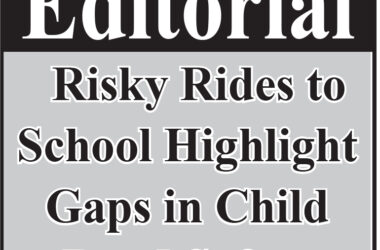By Deng Chol
In South Sudan, education is supposed to be a right for every child, yet, in reality, it has become a privilege enjoyed by a few who can afford it.
As private schools continue to grow in strength and reputation, majority of children, especially from poor and rural families are left behind in under-resourced and neglected public institution.
Public schools across the country face overwhelming challenges. Many lack permanent classrooms, desks, textbooks, or even clean drinking water. In some areas, learners sit under trees or in half-finished structures.
Teachers are underpaid, poorly trained, and often absent due to delayed salaries and lack of support. As a result, thousands of children attend school without receiving even the most basic quality of education.
Most especially, children in the villages are suffering in the hands of unqualified and untrained teachers. Many rural schools are staffed with individuals who themselves have limited education.
These teachers may lack the subject knowledge, teaching methods, and professional training needed to guide young minds. In some cases, a single teacher is responsible for multiple grade levels or teaches subjects outside their expertise. The children, eager to learn, are left without the proper guidance they need to grow intellectually.
Meanwhile, private schools in urban centers offer better infrastructure, committed teachers, and a conducive environment, where leaners are supported and challenged. These schools consistently outperform public ones in national exams and university entry.
However, the high cost of tuition, uniforms, and materials, puts these private instutitions of learning far beyond the reach of most ordinary South Sudanese families.
This growing gap, creates a dangerous divide; one system for the wealthy, and another broken one, for the poor.
Children from low-income families are not less intelligent. They do not lack ambition. What they lack is access to the same quality of education that private school students enjoy. This educational inequality is laying the foundation for long-term social and economic injustice.
In a country, still recovering from years of conflict, education should be a tool for healing and unity, not a barrier that widens the gap between rich and poor.
Unless serious reforms are made in the public school system, South Sudan risks losing an entire generation of talented youth. The government must prioritize investment in public education by improving school facilities, increasing teacher training and salaries, providing textbooks and learning materials, especially in rural areas.
Every child in South Sudan deserves the chance to learn in a safe, clean, and well-equipped school, regardless of their family’s income or location. Quality education should not be a luxury. It should be a national commitment.
The future of South Sudan depends on what we choose today. If we allow the public education system to continue collapsing, we are closing the door on peace, development, and progress. But if we rise to fix it, we give every child a fighting chance and the nation a stronger tomorrow.




